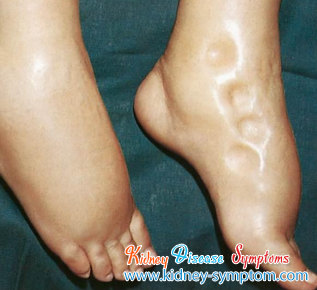
Peripheral edema, also known as neuropathy, is a medical condition that causes a gradual loss of sensation from different areas of the body. This can be brought about by a wide range of medical conditions, including pregnancy, excessive fluid build-up, medications, trauma, infections, and more. Although peripheral edema is not normally life-threatening, it can be debilitating and result in serious discomfort.
Swelling, also known as dropsy or blueness, is basically the swelling of tissues in your body due to excess fluid retention. Edema can be localized, usually affecting only the extremities (parasitic edema), or generalized, affecting most parts of the body. The condition itself can be caused by any number of factors, so understanding its causes will help you determine if you are suffering from peripheral edema or not.
Edema is a condition in which fluid in the body swells. Usually, excess fluid is excreted through the lymphatic system and excreted in the urine, but in some cases it builds up in your body tissues, causing swelling. In some cases, when fluid accumulates in this area, you may notice symptoms such as pain and pressure in the joints, as well as muscle weakness.
The more fluid the body accumulates, the more fluid the body needs to function properly. If the amount of fluid in your body exceeds the amount of fluid it can absorb, you have a problem and may suffer from neuropathy as a result.
There are many treatments for edema, but your doctor must determine exactly what is causing your condition as well as what is causing peripheral edema. While there are many medical conditions that can lead to this condition, the underlying cause of this condition is unknown, so your doctor will need to run tests on you to determine what the underlying cause is.
One of the most common causes of this condition is diabetes. When a person has diabetes, their body produces too much insulin in the bloodstream, which helps the cells break down sugars and convert them into usable energy. for a person to live a normal and active life. Unfortunately, insulin production can become excessive from time to time, which can lead to abnormal insulin sensitivity of the cells. The result is a buildup of fluid, which can cause your body to overreact and flush out excess fluid.

Many people who suffer from neuropathy are susceptible to neuropathy-caused edema
As previously mentioned, neuropathy is caused by damage to nerves throughout the body and affects the nerves that control the body's ability to regulate its functions. Neuropathy can cause the nerves in one part of your body to become damaged, so that it cannot respond to the signals from the brain or other parts of the body correctly.
If you are experiencing pain or discomfort after undergoing medical treatments that affect your nervous system, such as surgery, then you have neuropathy, then you may be prone to having peripheral edema. The underlying cause of the neuropathy will be able to be determined during a routine test called a nerve conduction test, but it may take some time before you get the results to confirm this diagnosis. Once your doctor has diagnosed neuropathy as a possible cause of your neuropathy, he or she will be able to determine the treatment that will work best to relieve your pain and numb the nerve endings, thus allowing your body to operate at its optimal level again.
It is not known why neuropathy occurs, but it is thought that nerve cells that normally process pain may get damaged when they are in a resting state. This allows the body to experience neuropathic pain instead of pain that is normal.
Common therapies used to relieve neuropathy are analgesics and anti-inflammatory drugs, which reduce or eliminate the sensation associated with pain. In addition to reducing pain, these drugs can also reduce inflammation and increase the amount of oxygen reaching those areas of the body that need the nutrients and oxygen needed to heal itself. While it is not entirely clear why neuropathy occurs, it is suspected that there are several factors that may contribute to neuropathy in the body.
If you experience pain while sleeping, you may want to talk to your doctor about the possible causes of the pain. He or she can provide you with additional information to help you understand neuropathy, including possible treatments that may be needed to relieve your symptoms. For neuropathic edema to occur, the underlying cause must be identified and treated, and neuropathy medications can help manage the condition.